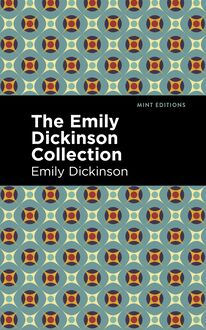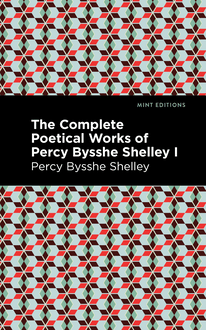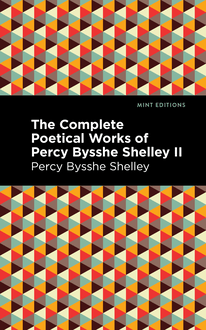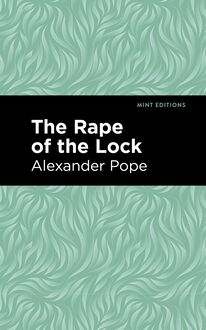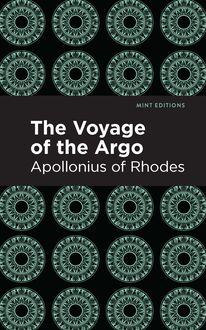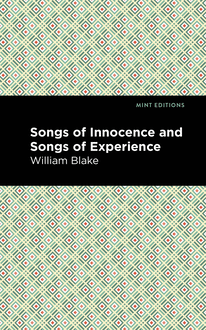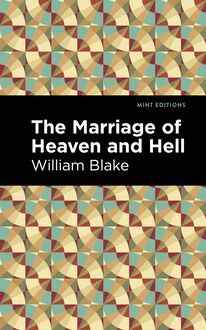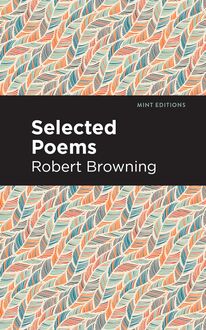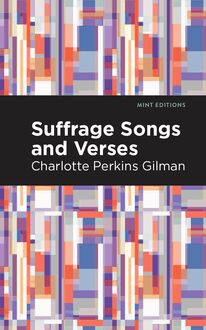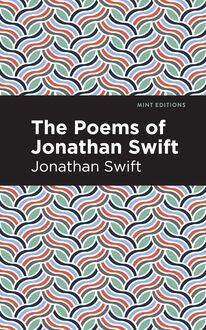-
 Univers
Univers
-
 Ebooks
Ebooks
-
 Livres audio
Livres audio
-
 Presse
Presse
-
 Podcasts
Podcasts
-
 BD
BD
-
 Documents
Documents
-
- Cours
- Révisions
- Ressources pédagogiques
- Sciences de l’éducation
- Manuels scolaires
- Langues
- Travaux de classe
- Annales de BEP
- Etudes supérieures
- Maternelle et primaire
- Fiches de lecture
- Orientation scolaire
- Méthodologie
- Corrigés de devoir
- Annales d’examens et concours
- Annales du bac
- Annales du brevet
- Rapports de stage
La lecture à portée de main
Vous pourrez modifier la taille du texte de cet ouvrage
Découvre YouScribe en t'inscrivant gratuitement
Je m'inscrisDécouvre YouScribe en t'inscrivant gratuitement
Je m'inscrisEn savoir plus
Vous pourrez modifier la taille du texte de cet ouvrage
En savoir plus

Description
Selected Poems (1923) is a collection of poems by American poet Robert Frost. Dedicated to Edward Thomas, a friend of Frost’s and an important English poet who died toward the end of the First World War, Selected Poems is a wonderful sampling of poems from Frost’s early collections, including A Boy’s Will and North of Boston. Known for his plainspoken language and dedication to the images and rhythms of rural New England, Robert Frost is one of America’s most iconic poets, a voice to whom generations of readers have turned in search of beauty, music, and life.
“Mowing” envisions the poet’s work through the prism of rural labor. “There was never a sound beside the wood but one / And that was my long scythe whispering to the ground. / What was it it whispered?” The speaker does not know, but continues his task, hypnotized by its rhythm and simple music. In “After Apple-Picking,” as fall gives over to winter, the poet remembers in dreams how the “Magnified apples appear and disappear, / Stem end and blossom end” as he climbs the ladder into the heart of the tree. Both a symbol for life and a metaphor for the poetic act, apple picking leaves the poet “overtired / Of the great harvest [he himself] desired”, awaiting sleep as he describes “its coming on,” wondering what, if anything, it will bring. “The Road Not Taken,” perhaps Frost’s most famous poem, is a meditation on fate and free will that follows a traveler in an autumn landscape, unsure of which path to take, but certain he cannot stand still.
With a beautifully designed cover and professionally typeset manuscript, this edition of Robert Frost’s Selected Poems is a classic of American literature reimagined for modern readers.
Sujets
Informations
| Publié par | Mint Editions |
| Date de parution | 01 février 2021 |
| Nombre de lectures | 0 |
| EAN13 | 9781513275895 |
| Langue | English |
Informations légales : prix de location à la page 0,0350€. Cette information est donnée uniquement à titre indicatif conformément à la législation en vigueur.
Extrait
Selected Poems
Robert Frost
Selected Poems was first published in 1923.
This edition published by Mint Editions 2020.
ISBN 9781513270890 | E-ISBN 9781513275895
Published by Mint Editions ®
minteditionbooks .com
Publishing Director: Jennifer Newens
Design & Production: Rachel Lopez Metzger
Project Manager: Micaela Clark
Typesetting: Westchester Publishing Services
C ONTENTS I The Pasture The Cow in Apple-Time The Runaway II An Old Man’s Winter Night Home Burial The Death of the Hired Man A Servant to Servants The Self-Seeker The Hill Wife House Fear The Smile The Oft-Repeated Dream The Impulse “Out, Out…” III Putting in the Seed Going for Water Mowing IV After Apple-Picking Birches The Gum-Gatherer The Mountain The Tuft of Flowers Mending Wall An Encounter The Wood-Pile V Snow In The Home Stretch VI The Road not Taken The Oven Bird A Vantage Point The Sound of Trees Hyla Brook My November Guest Range-Finding October To the Thawing Wind VII A Time to Talk The Code A Hundred Collars Blueberries Brown’s Descent or, the Willy-Nilly Slide VIII Revelation Storm-Fear Bond and Free Flower-Gathering Reluctance Into My Own
I
T HE P ASTURE
I’m going out to clean the pasture spring;
I’ll only stop to rake the leaves away
(And wait to watch the water clear, I may):
I shan’t be gone long.—You come too.
I’m going out to fetch the little calf
That’s standing by the mother. It’s so young,
It totters when she licks it with her tongue.
I shan’t be gone long.—You come too.
T HE C OW IN A PPLE- T IME
Something inspires the only cow of late
To make no more of a wall than an open gate,
And think no more of wall-builders than fools.
Her face is flecked with pomace and she drools
A cider syrup. Having tasted fruit,
She scorns a pasture withering to the root.
She runs from tree to tree where lie and sweeten
The windfalls spiked with stubble and worm-eaten.
She leaves them bitten when she has to fly.
She bellows on a knoll against the sky.
Her udder shrivels and the milk goes dry.
T HE R UNAWAY
Once when the snow of the year was beginning to fall,
We stopped by a mountain pasture to say “Whose colt?”
A little Morgan had one forefoot on the wall,
The other curled at his breast. He dipped his head
And snorted at us. And then he had to bolt.
We heard the miniature thunder where he fled,
And we saw him, or thought we saw him, dim and grey,
Like a shadow against the curtain of falling flakes.
“I think the little fellow’s afraid of the snow.
He isn’t winter-broken. It isn’t play
With the little fellow at all. He’s running away.
I doubt if even his mother could tell him, ‘Sakes,
It’s only weather.’ He’d think she didn’t know!
Where is his mother? He can’t be out alone.”
And now he comes again with a clatter of stone
And mounts the wall again with whited eyes
And all his tail that isn’t hair up straight.
He shudders his coat as if to throw off flies.
“Whoever it is that leaves him out so late,
When other creatures have gone to stall and bin,
Ought to be told to come and take him in.”
II
A N O LD M AN’S W INTER N IGHT
All out of doors looked darkly in at him
Through the thin frost, almost in separate stars,
That gathers on the pane in empty rooms.
What kept his eyes from giving back the gaze
Was the lamp tilted near them in his hand.
What kept him from remembering what it was
That brought him to that creaking room was age.
He stood with barrels round him—at a loss.
And having scared the cellar under him
In clomping there, he scared it once again
In clomping off;—and scared the outer night,
Which has its sounds, familiar, like the roar
Of trees and crack of branches, common things,
But nothing so like beating on a box.
A light he was to no one but himself
Where now he sat, concerned with he knew what,
A quiet light, and then not even that.
He consigned to the moon, such as she was,
So late-arising, to the broken moon
As better than the sun in any case
For such a charge, his snow upon the roof,
His icicles along the wall to keep;
And slept. The log that shifted with a jolt
Once in the stove, disturbed him and he shifted,
And eased his heavy breathing, but still slept.
One aged man—one man—can’t keep a house,
A farm, a countryside, or if he can,
It’s thus he does it of a winter night.
H OME B URIAL
He saw her from the bottom of the stairs
Before she saw him. She was starting down,
Looking back over her shoulder at some fear.
She took a doubtful step and then undid it
To raise herself and look again. He spoke
Advancing toward her: “What is it you see
From up there always—for I want to know.”
She turned and sank upon her skirts at that,
And her face changed from terrified to dull.
He said to gain time: “What is it you see?”
Mounting until she cowered under him.
“I will find out now—you must tell me, dear.”
She, in her place, refused him any help
With the least stiffening of her neck and silence.
She let him look, sure that he wouldn’t see,
Blind creature; and a while he didn’t see.
But at last he murmured, “Oh,” and again, “Oh.”
“What is it—what?” she said.
“Just that I see.”
“You don’t,” she challenged. “Tell me what it is.”
“The wonder is I didn’t see at once.
I never noticed it from here before.
I must be wonted to it—that’s the reason.
The little graveyard where my people are!
So small the window frames the whole of it.
Not so much larger than a bedroom, is it?
There are three stones of slate and one of marble,
Broad-shouldered little slabs there in the sunlight
On the sidehill. We haven’t to mind those.
But I understand: it is not the stones,
But the child’s mound—”
Don’t, don’t, don’t, don’t,” she cried.
She withdrew shrinking from beneath his arm
That rested on the banister, and slid downstairs;
And turned on him with such a daunting look,
He said twice over before he knew himself:
“Can’t a man speak of his own child he’s lost?”
“Not you! Oh, where’s my hat? Oh, I don’t need it!
I must get out of here. I must get air.
I don’t know rightly whether any man can.”
“Amy! Don’t go to someone else this time.
Listen to me. I won’t come down the stairs.”
He sat and fixed his chin between his fists.
“There’s something I should like to ask you, dear.”
“You don’t know how to ask it.”
“Help me, then.”
Her fingers moved the latch for all reply.
“My words are nearly always an offence.
I don’t know how to speak of anything
So as to please you. But I might be taught
I should suppose. I can’t say I see how.
A man must partly give up being a man
With women-folk. We could have some arrangement
By which I’d bind myself to keep hands off
Anything special you’re a-mind to name.
Though I don’t like such things ’twixt those that love.
Two that don’t love can’t live together without them.
But two that do can’t live together with them.”
She moved the latch a little. “Don’t—don’t go.
Don’t carry it to someone else this time.
Tell me about it if it’s something human.
Let me into your grief. I’m not so much
Unlike other folks as your standing there
Apart would make me out. Give me my chance.
I do think, though, you overdo it a little.
What was it brought you up to think it the thing
To take your mother-loss of a first child
So inconsolably—in the face of love.
You’d think his memory might be satisfied—”
“There you go sneering now!”
“I’m not, I’m not!
You make me angry. I’ll come down to you.
God, what a woman! And it’s come to this,
A man can’t speak of his own child that’s dead.”
“You can’t because you don’t know how.
If you had any feelings, you that dug
With your own hand—how could you?—his little grave;
I saw you from that very window there,
Making the gravel leap and leap in air,
Leap up, like that, like that, and land so lightly
And roll back down the mound beside the hole.
I thought, Who is that man? I didn’t know you.
And I crept down the stairs and up the stairs
To look again, and still your spade kept lifting.
Then you came in. I heard your rumbling voice
Out in the kitchen, and I don’t know why,
But I went near to see with my own eyes.
You could sit there with the stains on your shoes
Of the fresh earth from your own baby’s grave
And talk about your everyday concerns.
You had stood the spade up against the wall
Outside there in the entry, for I saw it.”
“I shall laugh the worst laugh I ever laughed.
I’m cursed. God, if I don’t believe I’m cursed.”
“I can repeat the very words you were saying.
‘Three foggy mornings and one rainy day
Will rot the best birch fence a man can build.’
Think of it, talk like that at such a time!
What had how long it takes a birch to rot
To do with what was in the darkened parlour?
You couldn’t care! The nearest friends can go
With anyone to death, comes so far short
They might as well not try to go at all.
No, from the time when one is sick to death,
One is alone, and he dies more alone.
Friends make pretence of following to the grave,
But before one is in it, their minds are turned
And making the best of their way back to life
And living people, and things they understand.
But the world’s evil. I won’t have grief so
If I can change it. Oh, I won’t, I won’t!”
“There, you have said it all and you feel better.
You won’t go now. You’re crying. Close the door.
The heart’s gone out of it: why keep it up?
Amy! There’s someone coming down the road!”
“ You —oh, you think the talk is all. I must go—
Somewhere out of this house. How can I make you—”
“If—you—do!” She was opening the door wider.
“Where do you mean to go? First tell me that.
I’ll follow and bring you back by force. I will! —”
T HE D EATH OF THE H IRED M AN
Mary sat musing on the lamp-flame at the table
Waiting for Warren. When she heard his step,
She ran on tip-toe down the darkened passage
To meet him in the doorway with the news
And put him on his guard. “Silas is back.”
She pushed him outward with her through the door
And shut it after
-
 Univers
Univers
-
 Ebooks
Ebooks
-
 Livres audio
Livres audio
-
 Presse
Presse
-
 Podcasts
Podcasts
-
 BD
BD
-
 Documents
Documents
-
Jeunesse
-
Littérature
-
Ressources professionnelles
-
Santé et bien-être
-
Savoirs
-
Education
-
Loisirs et hobbies
-
Art, musique et cinéma
-
Actualité et débat de société
-
Jeunesse
-
Littérature
-
Ressources professionnelles
-
Santé et bien-être
-
Savoirs
-
Education
-
Art, musique et cinéma
-
Actualité et débat de société
-
Actualités
-
Lifestyle
-
Presse jeunesse
-
Presse professionnelle
-
Pratique
-
Presse sportive
-
Presse internationale
-
Culture & Médias
-
Action et Aventures
-
Science-fiction et Fantasy
-
Société
-
Jeunesse
-
Littérature
-
Ressources professionnelles
-
Santé et bien-être
-
Savoirs
-
Education
-
Loisirs et hobbies
-
Art, musique et cinéma
-
Actualité et débat de société
- Cours
- Révisions
- Ressources pédagogiques
- Sciences de l’éducation
- Manuels scolaires
- Langues
- Travaux de classe
- Annales de BEP
- Etudes supérieures
- Maternelle et primaire
- Fiches de lecture
- Orientation scolaire
- Méthodologie
- Corrigés de devoir
- Annales d’examens et concours
- Annales du bac
- Annales du brevet
- Rapports de stage


